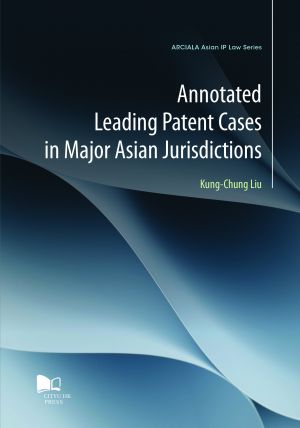In Asia, even in common law jurisdictions such as Singapore and Hong Kong, the development of intellectual property (“IP”) law is mostly driven by statutory law, namely parliament-made law, which is rightly so, to the extent that exclusive rights are better reserved for the legislature to create and define. Since the 1980s, statutory IP law in Asia has principally evolved as a result of pressure from trade talks with the United States, its dominant trading partner. Thus, technocrats in trade ministries and IP offices and interest groups have dominated the direction of IP legislation. There are many easily discernible downsides to this system, including (but not limited to) uneven regulation of the same issue across different legal regimes (such as exhaustion, fair use, and compulsory licensing) and creation of IP regimes that prioritize developmental needs in international trade negotiations over important issues of national public interest. In this system, IP rights seem to trump every other right, sometimes even basic human rights, and consumer protection.
In the copyright arena, Asia has special features. Being home to almost half of the world’s population, Asia is the fastest growing economic region (which stimulates the need for creative works) and has been the world’s factory (technically capable of exploiting creative works) for decades. And yet, Asia lacks effective collective management organizations (“CMOs”) to bridge the gap between rightsholders and users, rendering copyright regimes only law in book, rather than law in action. Notable exceptions include Japan, Hong Kong, and perhaps Singapore. The lack of functional CMOs almost unavoidably leads to rampant piracy in Asia, which triggers overuse of criminal sanctions.
Annotated Leading Copyright Cases in Major Asian Jurisdictions
HKD450.00
In stock
In this second volume of the Applied Research Center for Intellectual Assets and the Law in Asia (ARCIALA) series, thirty-seven eminent scholars and practitioners from Asia and the United States have come together to comprehensively assess leading copyright cases from eight major Asian jurisdictions (People’s Republic of China (PRC), India, Japan, Korea, Malaysia, the Philippines, Singapore, and Taiwan). This book contains thirty-six case reports that focus on six topics that reflect the current trends in Asian copyright law—namely, digital copyright, collective copyright (including the management of copyright and the interface between collecting societies and competition law), criminal copyright (with a discussion of criminal punishment for copyright infringement), limits to copyright (such as fair use and exhaustion), the relationship between copyright laws and other forms of protection, and choice of jurisdiction and applicable law in copyright litigation. Each case report deconstructs the legal background, facts, and rationale of the decision in a particular landmark case, and then discusses the commercial or industrial significance and application. Notably, this includes an analysis of The Hague Convention on Choice of Court Agreements and its adoption in Singapore, which is, to date, the only Asian country to have fully ratified it.
Taken together, this volume presents a useful guide for copyright practitioners, professionals, lawyers, and judges alike in addition to acting as a primer for students and businessmen planning to enter Asia’s exciting world of copyright. It also serves as a handbook for policy makers, both within Asia and further afield.
Taken together, this volume presents a useful guide for copyright practitioners, professionals, lawyers, and judges alike in addition to acting as a primer for students and businessmen planning to enter Asia’s exciting world of copyright. It also serves as a handbook for policy makers, both within Asia and further afield.
ISBN
978-962-937-380-1
Pub. Date
Jul 19, 2019
Weight
1.1kg
Paperback
564 pages
Dimension
178 x
254 mm
Subjects
Chapter 1 Introduction Copyright Laws and Cases in Major Asian Jurisdictions
Chapter 2 Digital Copyright
Chapter 3 Collective Copyright
Chapter 4 Criminal Copyright
Chapter 5 Limits to Copyright Protection
Chapter 6 The Relationship between Copyright and Other Forms of Protection
Chapter 7 Jurisdiction and Applicable Laws for Copyright Litigation
Appendix Certainty and Uncertainty of Cross-Border Copyright Infringement Litigation in Singapore


